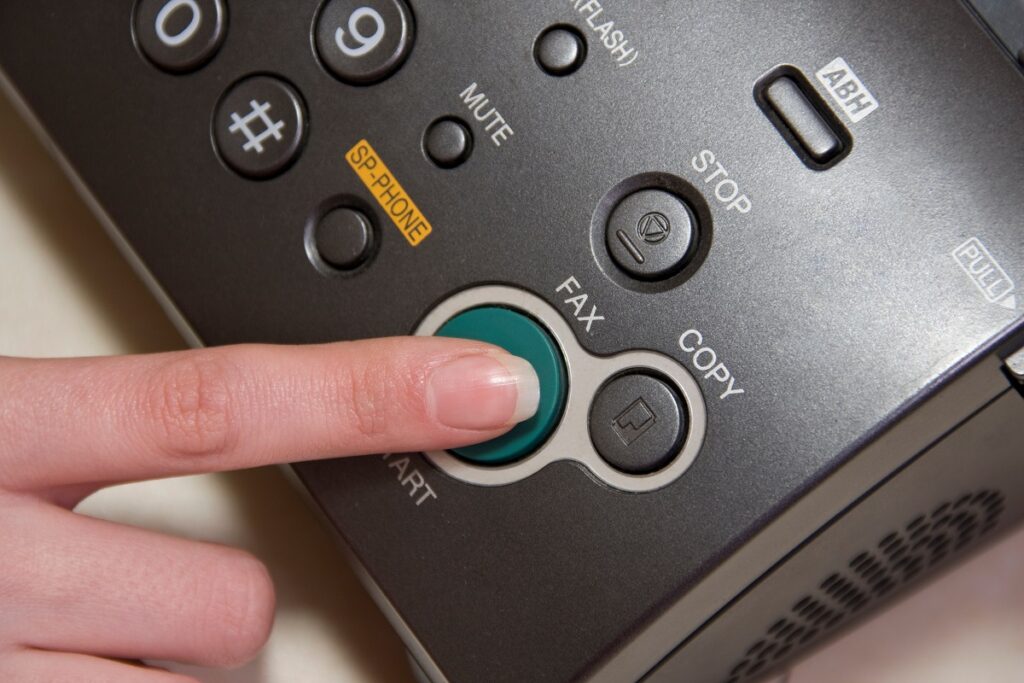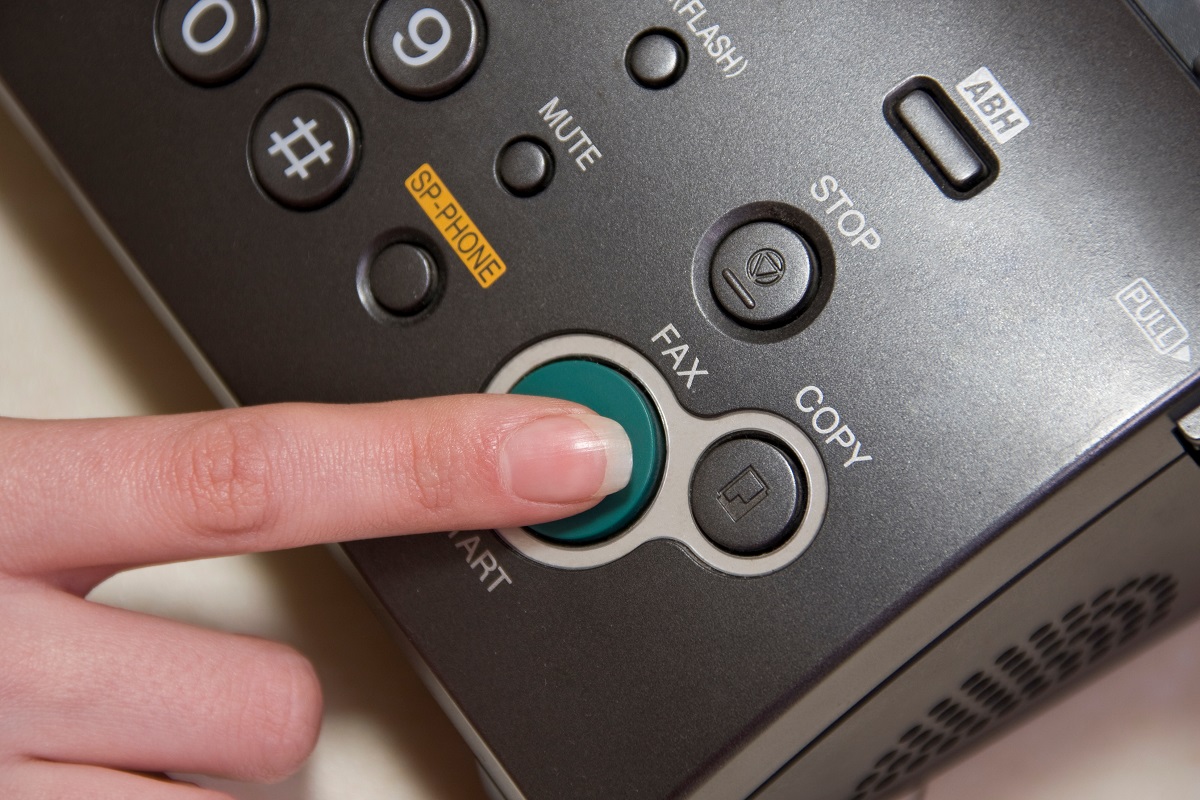
Despite the notion that the age of faxing is long gone, it surprisingly continues to play a pivotal role in various sectors such as large corporations, hospitals, and administrative offices across the globe. Not only is faxing still alive, but it also proves to be an efficient and quick mode of transmitting crucial information over significant distances. Now, the real question lies in how you can send a fax even if your organization doesn’t possess a dedicated fax machine or fax frequently. Is it possible to send a fax without investing in extra equipment? The answer is an emphatic yes! Let’s dive deeper to discover how you can harness the power of modern technology to send an online fax conveniently.
Enter online faxing service, brought to you by FaxBurner. We’ve ushered in a new era of faxing by digitizing it completely, ensuring that it’s cost-effective and doesn’t require additional hardware. Our free fax app for iPhone lets you send and receive faxes straight from your mobile device, making faxing more accessible than ever. Additionally, we provide a free email to fax service for computer and phone, affirming our commitment to accommodate all types of users and their unique needs. So why wait? Embrace the convenience of online faxing with FaxBurner today!
Fax Machines and Email Security
Fax machines have been around for decades and were once the go-to method for sending documents quickly. With the advent of email, fax machines have become less popular, but they still have a place in the modern workplace. Email has become the primary mode of communication for many businesses, but it has some significant security risks.
Email is a vulnerable channel for cyber attacks. Hackers can easily intercept email messages, and it’s not uncommon for emails to be forwarded multiple times. Email is also susceptible to data harvesting bots and malicious software. Once these bots infiltrate your system, they can cause significant damage. That’s why it’s crucial to consider other forms of communication that offer better security.
How Do Fax Machines Work?
Fax machines are electronic devices used for transmitting and receiving documents over telephone lines using a dedicated fax number. The word “fax” is short for “facsimile,” which means an exact copy or reproduction.
Here’s how fax machines work:
- Scanning: The fax machine scans the document to be sent, converting it into a series of dots and lines (pixels).
- Encoding: The dots and lines are then encoded into a digital signal that can be transmitted over the telephone line. This is usually done using a modulation technique called “phase-shift keying.”
- Transmitting: The encoded signal is sent over the telephone line to the receiving fax machine.
- Receiving: The receiving fax machine decodes the signal and converts it back into a series of dots and lines.
- Printing: The dots and lines are then printed onto paper using a thermal printer, producing a facsimile of the original document.
Fax machines can also receive documents in the same way. When a fax machine receives a signal, it decodes it and prints out the document. Some fax machines can also store incoming faxes in memory, allowing them to be printed at a later time.
While faxing may seem like an archaic method of communication, it’s still used by many businesses because of its security benefits.
The Security Benefits of Using a Fax Machine
One of the biggest security benefits of using a fax machine is that it doesn’t require an internet connection. This means that hackers can’t intercept fax messages like they can with emails. Additionally, fax machines use the public switched telephone network (PSTN) to transmit messages, which is a highly secure network that’s difficult to hack.
Fax machines are much less susceptible to hacking or interception than traditional email or messaging services. This is because all data sent via a fax machine is encrypted and can only be decrypted with the proper access codes. This makes it much more difficult for any unauthorized third-party to gain access to sensitive data.
Fax machines are much more reliable than other methods of communication. The transmission of faxes is often done over dedicated phone lines, which are less prone to disruptions or interference. Fax machines can also be used to send documents with signatures, which adds an extra layer of authentication and security.
The Public Switched Telephone Network and Fax Technology
The Public Switched Telephone Network (PSTN) is the traditional circuit-switched telephone network used for voice transmissions. It is the most widely used telephone network in the world, and is the foundation of the global telecommunications system. The PSTN is composed of a series of interconnected switches, connecting local, regional, and international telephone exchanges. PSTN switches use time-division multiplexing (TDM) to transfer data in the form of analog or digital signals, allowing for a wide variety of services, such as voice mail, call forwarding, and conference calling.
Because the PSTN is a closed network, it’s much more secure than the internet. When you send a fax message, it’s transmitted over the PSTN, making it virtually impossible for hackers to intercept.
Modern Fax Machines vs. Online Faxing Services
While traditional fax machines are still widely used, many businesses have switched to online faxing services. These services allow you to send and receive faxes over the internet, but they still offer the same security benefits as traditional fax machines. Online faxing services use encryption to protect your messages, making them just as secure as traditional faxing.
Modern fax machines are still in use today, but they are slowly being replaced by online faxing services. Traditional fax machines require an analog phone line and a dedicated fax machine, as well as dedicated paper and ink. Online faxing services use the internet to send and receive faxes, eliminating the need for a dedicated phone line and fax machine. Online services also allow users to send and receive faxes from any device with an internet connection, including smartphones and tablets. Online faxing services are often more cost-effective than traditional fax machines and are more secure, as they use encryption to protect data.
How Data Harvesting Bots and Malicious Software Can Be Prevented With Faxing
Data harvesting bots and malicious software are two of the biggest threats to email security. These bots can be a source of many security issues as they can infiltrate your system and steal sensitive information. With faxing, these threats are virtually eliminated. Because fax messages are transmitted over the PSTN and don’t require an internet connection, there’s no way for bots or malware to infiltrate your system.
Faxing is a secure and reliable way to send documents since it involves a direct connection between two parties. This prevents malicious bots and software from accessing the data as it is not transmitted over the internet. Faxing also provides a record of who sent the documents and when, making it easier to trace if there is any suspicious activity. Additionally, data sent via fax can be encrypted to provide an extra layer of data security.
The Security Benefits of Switched Telephone Line Networks and Cloud Phone Systems
In addition to the security benefits of the PSTN, cloud phone systems offer an added layer of security. These systems use the internet to transmit phone calls and fax messages, but they still use encryption to protect your messages. Additionally, cloud phone systems often have virus checkers and firewalls built-in, which can further protect your messages from cyber attacks.
Here are some of their key security benefits:
- Encryption: Switched telephone line networks and cloud phone systems use encryption to secure voice communications. Encryption ensures that voice data is scrambled and unreadable to anyone who intercepts it, protecting against eavesdropping and data theft.
- Firewall protection: Cloud phone systems are typically hosted in data centers that have advanced firewall protection. Firewalls block unauthorized access to the phone system, preventing hacking attempts and other security breaches.
- Redundancy: Cloud phone systems are often designed with redundancy in mind, meaning that there are multiple servers and data centers that can take over in the event of an outage. This redundancy ensures that phone service remains available even in the event of a disaster or other service interruption.
- Authentication: Cloud phone systems typically require authentication before granting access to the phone network. This means that users must log in with a username and password, or use other forms of authentication, such as biometric authentication, to access the phone system. This helps prevent unauthorized access to the phone system and protects against hacking attempts.
- Centralized management: Cloud phone systems are often managed centrally, meaning that updates, patches, and security enhancements can be applied quickly and easily. This centralized management ensures that the phone system is always up-to-date with the latest security patches and other protections.
Direct Manual Access and Online Faxing for Sending and Receiving Secure Faxes
Fax machines offer direct manual access, which means that you can physically pick up a fax message from the machine. This is an added layer of security because there’s no way for hackers to intercept the message once it’s been received. Online faxing services also offer secure transmission of fax messages, making it easy to send and receive faxes from anywhere in the world.
Faxing meets security regulations and legal purposes because it offers a secure method of transmitting sensitive information. In fact, many federal regulations require businesses to use faxing for certain types of confidential documents.
The Importance of Encryption, Virus Checkers, and Digital Signatures in Faxing
Encryption, virus checkers, and digital signatures are all essential components of secure faxing. Encryption protects your messages from interception, virus checkers protect your messages from malware, and digital signatures ensure that your messages are authentic. These security features work together to create a highly secure method of communication.
How One Machine Can Handle Secure Faxing for Many Businesses
One of the benefits of using a fax machine is that one machine can handle secure faxing for many businesses. This makes it an affordable option for businesses of all sizes. Additionally, a reliable online faxing service will offer plans that allow multiple users to access the same account, making it easy for businesses to share a fax machine.
Final Thoughts
While email has become the dominant form of communication, it’s not always the most secure option. Fax machines offer a level of security that can’t be matched by email. With the use of the public switched telephone network, encryption, virus checkers, and digital signatures, faxing offers a highly secure method of communication. Whether you’re a small business or a large corporation, faxing is an affordable and secure option for transmitting sensitive information.


